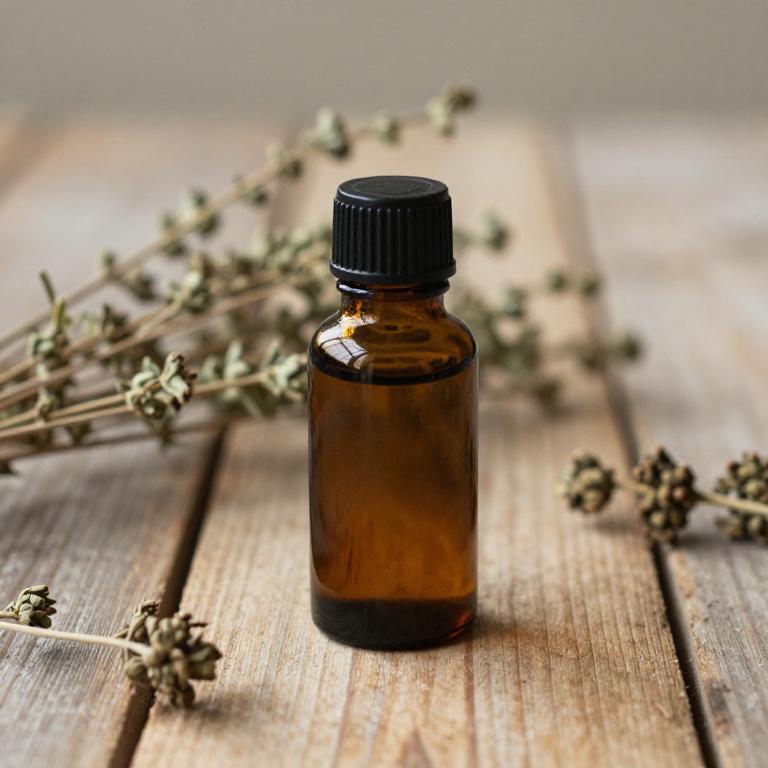10 Best Herbal Essential Oils For Snoring

Herbal essential oils have gained popularity as natural remedies for reducing snoring, offering a gentle and alternative approach to traditional treatments.
Oils such as eucalyptus, peppermint, and lavender are commonly used due to their decongestant, calming, and anti-inflammatory properties. When diffused in the bedroom or applied topically with a carrier oil, these essential oils can help clear nasal passages and relax throat muscles, potentially minimizing snoring. However, it is important to use them safely, as some oils may cause irritation or allergic reactions.
While they may provide mild relief, they should not replace medical advice or treatment for severe or chronic snoring issues.
Table of Contents
- 1. Rosemary (Rosmarinus officinalis)
- 2. Eucalyptus (Eucalyptus globulus)
- 3. Thyme (Thymus vulgaris)
- 4. English lavender (Lavandula angustifolia)
- 5. Ceylon cinnamon (Cinnamomum zeylanicum)
- 6. Ginger (Zingiber officinale)
- 7. Oregano (Origanum vulgare)
- 8. Lemon balm (Melissa officinalis)
- 9. Peppermint (Mentha piperita)
- 10. Black pepper (Piper nigrum)
1. Rosemary (Rosmarinus officinalis)

Rosmarinus officinalis, commonly known as rosemary, is a versatile herb whose essential oil has been traditionally used for its aromatic and therapeutic properties.
The essential oil of rosemary contains compounds such as camphor, pinene, and cineole, which are known for their ability to improve respiratory function and reduce nasal congestion. When used in aromatherapy, rosemary essential oil may help alleviate snoring by promoting clearer airways and enhancing breathing during sleep. It can be diffused in the bedroom or applied topically (diluted) to the chest and neck for its soothing effects.
While it is not a cure for snoring, rosemary essential oil may offer a natural and supportive approach to managing nighttime breathing issues.
2. Eucalyptus (Eucalyptus globulus)

Eucalyptus globulus, commonly known as peppermint eucalyptus, is a popular source of herbal essential oils that has been explored for its potential to alleviate snoring.
The essential oil contains compounds like eucalyptol and 1,8-cineole, which possess anti-inflammatory and decongestant properties that may help reduce nasal congestion and improve breathing during sleep. Some studies suggest that inhaling eucalyptus globulus essential oil can help open up airways and reduce the frequency of snoring by promoting clearer respiratory passages. However, it is important to use the oil safely, often through diffusion or topical application diluted with a carrier oil, to avoid irritation.
While it may offer some relief, it is not a substitute for medical treatment, and individuals with chronic snoring should consult a healthcare professional for a comprehensive approach.
3. Thyme (Thymus vulgaris)

Thymus vulgaris, commonly known as thyme, is a popular herb used in aromatherapy for its potent essential oils, which are often explored for their potential to alleviate symptoms related to snoring.
The essential oil of thyme contains compounds like thymol and linalool, which are known for their antimicrobial and anti-inflammatory properties, potentially helping to reduce respiratory congestion. When used in aromatherapy diffusers or applied topically (diluted), thyme essential oil may help open up airways and ease breathing, which can reduce the likelihood of snoring. However, it is important to note that while some anecdotal evidence suggests it may offer respiratory benefits, scientific research specifically linking thyme essential oil to reduced snoring is limited.
As with any essential oil, it should be used with caution and under the guidance of a qualified aromatherapist or healthcare provider.
4. English lavender (Lavandula angustifolia)

Lavandula angustifolia, commonly known as English lavender, is a popular herb used in the production of essential oils due to its calming and soothing properties.
The essential oil derived from this plant contains compounds such as linalool and linalyl acetate, which are known for their potential to reduce stress and promote relaxation. Some studies suggest that lavender essential oil may help alleviate snoring by relaxing the muscles in the throat and reducing inflammation. When used in aromatherapy or diffused in the bedroom, lavender oil can create a calming environment that may improve sleep quality and reduce nighttime disturbances.
However, while anecdotal evidence supports its use for snoring, more scientific research is needed to fully understand its efficacy in this context.
5. Ceylon cinnamon (Cinnamomum zeylanicum)

Cinnamomum zeylanicum, commonly known as cinnamon bark, contains essential oils that have been explored for their potential to alleviate snoring.
The primary compounds in cinnamon essential oil, such as cinnamaldehyde and eugenol, possess anti-inflammatory and antimicrobial properties that may help reduce airway irritation and mucus production. When used in aromatherapy or diffused in the bedroom, these oils can promote relaxation and improve respiratory function, potentially reducing the frequency of snoring. Some studies suggest that the warming effect of cinnamon oil may help open up nasal passages, making breathing easier during sleep.
However, while preliminary research is promising, more clinical studies are needed to fully understand its efficacy and safety for snoring relief.
6. Ginger (Zingiber officinale)

Zingiber officinale, commonly known as ginger, contains essential oils that have been studied for their potential to alleviate snoring.
The essential oils derived from ginger, such as zingiberene and bisabolene, possess anti-inflammatory and antispasmodic properties that may help reduce airway swelling and relax throat muscles. These effects can potentially improve airflow and reduce the vibrations that cause snoring. Some preliminary research suggests that inhaling ginger essential oil may help open up the respiratory passages, making breathing smoother during sleep.
While more clinical studies are needed, ginger essential oil is being explored as a natural alternative to conventional snoring remedies.
7. Oregano (Origanum vulgare)

Origanum vulgare, commonly known as oregano, is a flowering plant whose essential oil has been traditionally used for its aromatic and therapeutic properties.
The essential oil of oregano contains high concentrations of compounds like carvacrol and thymol, which are known for their anti-inflammatory and antimicrobial effects. Some studies suggest that these compounds may help reduce respiratory inflammation and improve airway function, potentially alleviating symptoms associated with snoring. When used in diffusers or applied topically (with a carrier oil), oregano essential oil may support clearer breathing during sleep.
However, it is important to consult with a healthcare professional before using essential oils, especially for individuals with respiratory conditions or sensitivities.
8. Lemon balm (Melissa officinalis)

Melissa officinalis, commonly known as lemon balm, is a herb that has been traditionally used for its calming and soothing properties.
Its essential oil, derived through steam distillation of the fresh leaves, contains compounds such as linalool and camphor, which are known for their relaxing effects on the nervous system. Some studies suggest that the use of lemon balm essential oil may help reduce stress and anxiety, which are common contributors to snoring by relaxing the throat muscles. When used in aromatherapy or diluted and applied topically, it may support better sleep quality and potentially reduce nighttime snoring.
However, it is important to consult with a healthcare professional before using essential oils, especially for individuals with respiratory conditions or allergies.
9. Peppermint (Mentha piperita)

Mentha piperita, commonly known as peppermint, is a popular herb whose essential oil is widely used for its stimulating and cooling properties.
The essential oil of peppermint contains high concentrations of menthol, which can help to open up the airways and reduce congestion, making it a potential natural remedy for snoring. When used in aromatherapy or as a topical application, peppermint essential oil may help to alleviate throat irritation and improve respiratory function, thereby reducing the frequency of snoring. However, it is important to dilute the oil properly before use to avoid skin irritation or adverse reactions.
While some studies suggest that peppermint oil may offer relief for snoring, more research is needed to fully understand its effectiveness and long-term benefits.
10. Black pepper (Piper nigrum)

Piper nigrum, commonly known as black pepper, contains essential oils that have been explored for their potential to alleviate snoring.
The essential oils derived from black pepper, particularly those containing compounds like piperine, may help reduce nasal congestion and improve respiratory airflow, which can contribute to less snoring. These oils are believed to have mild stimulant and anti-inflammatory properties that could relax the throat muscles and reduce obstruction during sleep. However, it is important to note that while some anecdotal evidence suggests potential benefits, scientific research on the effectiveness of black pepper essential oils for snoring is limited.
As with any complementary therapy, it is advisable to consult a healthcare professional before using these oils, especially for individuals with respiratory conditions or allergies.